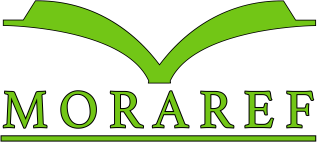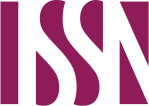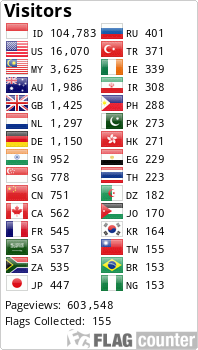About the Journal
Focus and Scope
Islamuna: Jurnal Studi Islam (ISSN: 2407-411X; E-ISSN: 2443-3535) is a double-blind peer-reviewed journal published binnually by the Postgraduate Program of Madura State Islamic Institute (Pascasarjana of Institut Agama Islam Negeri (IAIN) Madura).
FOCUS
Islamuna focuses to provide readers with best understanding of Islamic studies from various perspectives i.e. education, law, philosophy, theology, sufism, history, culture, economics, social, and politics.
SCOPE
Islamuna specializes in Islamic studies from various perspectives i.e. education, law, philosophy, theology, sufism, history, culture, economics, social, and politics.
Open Access Policy
This journal provides immediate open access to its content on the principle that making research freely available to the public supports a greater global exchange of knowledge.
Publication Ethic
Islamuna: Jurnal Studi Islam is a double-blind peer-reviewed journal available in print (P-ISSN 2407-411X) and online (E-ISSN 2443-3535) and published twice a year. This statement clarifies ethical behaviour of all parties involved in the act of publishing an article in this journal, including the author, the chief editor, the Editorial Board, the peer-reviewer and the publisher by Postgraduate Program of Institut Agama Islam Negeri (IAIN) Madura. This statement is based on COPE’s Best Practice Guidelines for Journal Editors.
Ethical Guideline for Journal Publication
The publication of an article in a peer-reviewed Islamuna is an essential building block in the development of a coherent and respected network of knowledge. It is a direct reflection of the quality of the work of the authors and the institutions that support them. Peer-reviewed articles support and embody the scientific method. It is therefore important to agree upon standards of expected ethical behavior for all parties involved in the act of publishing: the author, the journal editor, the peer reviewer, the publisher and the society.
Postgraduate Program of Institut Agama Islam Negeri (IAIN) Madura as publisher of Islamuna takes its duties of guardianship over all stages of publishing seriously and we recognize our ethical and other responsibilities. We are committed to ensuring that advertising, reprint or other commercial revenue has no impact or influence on editorial decisions.
Publication decisions
The editor of the Islamuna is responsible for deciding which of the articles submitted to the journal should be published. The validation of the work in question and its importance to researchers and readers must always drive such decisions. The editors may be guided by the policies of the journal's editorial board and constrained by such legal requirements as shall then be in force regarding libel, copyright infringement and plagiarism. The editors may confer with other editors or reviewers in making this decision.
Fair play
An editor at any time evaluate manuscripts for their intellectual content without regard to race, gender, sexual orientation, religious belief, ethnic origin, citizenship, or political philosophy of the authors.
Confidentiality
The editor and any editorial staff must not disclose any information about a submitted manuscript to anyone other than the corresponding author, reviewers, potential reviewers, other editorial advisers, and the publisher, as appropriate.
Disclosure and conflicts of interest
Unpublished materials disclosed in a submitted manuscript must not be used in an editor's own research without the express written consent of the author.
Duties of Reviewers
Contribution to Editorial Decisions
Peer review assists the editor in making editorial decisions and through the editorial communications with the author may also assist the author in improving the paper.
Promptness
Any selected referee who feels unqualified to review the research reported in a manuscript or knows that its prompt review will be impossible should notify the editor and excuse himself from the review process.
Confidentiality
Any manuscripts received for review must be treated as confidential documents. They must not be shown to or discussed with others except as authorized by the editor.
Standards of Objectivity
Reviews should be conducted objectively. Personal criticism of the author is inappropriate. Referees should express their views clearly with supporting arguments.
Acknowledgement of Sources
Reviewers should identify relevant published work that has not been cited by the authors. Any statement that an observation, derivation, or argument had been previously reported should be accompanied by the relevant citation. A reviewer should also call to the editor's attention any substantial similarity or overlap between the manuscript under consideration and any other published paper of which they have personal knowledge.
Disclosure and Conflict of Interest
Privileged information or ideas obtained through peer review must be kept confidential and not used for personal advantage. Reviewers should not consider manuscripts in which they have conflicts of interest resulting from competitive, collaborative, or other relationships or connections with any of the authors, companies, or institutions connected to the papers.
Duties of Authors
Reporting standards
Authors of reports of original research should present an accurate account of the work performed as well as an objective discussion of its significance. Underlying data should be represented accurately in the paper. A paper should contain sufficient detail and references to permit others to replicate the work. Fraudulent or knowingly inaccurate statements constitute unethical behaviour and are unacceptable.
Originality and Plagiarism
The authors should ensure that they have written entirely original works, and if the authors have used the work and/or words of others that this has been appropriately cited or quoted.
Multiple, Redundant or Concurrent Publication
An author should not in general publish manuscripts describing essentially the same research in more than one journal or primary publication. Submitting the same manuscript to more than one journal concurrently constitutes unethical publishing behaviour and is unacceptable.
Acknowledgement of Sources
Proper acknowledgment of the work of others must always be given. Authors should cite publications that have been influential in determining the nature of the reported work.
Authorship of the Paper
Authorship should be limited to those who have made a significant contribution to the conception, design, execution, or interpretation of the reported study. All those who have made significant contributions should be listed as co-authors. Where there are others who have participated in certain substantive aspects of the research project, they should be acknowledged or listed as contributors. The corresponding author should ensure that all appropriate co-authors and no inappropriate co-authors are included on the paper, and that all co-authors have seen and approved the final version of the paper and have agreed to its submission for publication.
Disclosure and Conflicts of Interest
All authors should disclose in their manuscript any financial or other substantive conflict of interest that might be construed to influence the results or interpretation of their manuscript. All sources of financial support for the project should be disclosed.
Fundamental errors in published works
When an author discovers a significant error or inaccuracy in his/her own published work, it is the author’s obligation to promptly notify the journal editor or publisher and cooperate with the editor to retract or correct the paper
Peer-Review Guidelines
This journal uses double-blind review, which means that both the reviewer and author identities are concealed from the reviewers, and vice versa, throughout the review process.
To facilitate this, authors need to ensure that their manuscripts are prepared in a way that does not give away their identity. To help with this preparation please ensure the following when submitting to Islamuna: Jurnal Studi Islam:
-
Submit the title page containing the authors details and blinded manuscript with no author details as 2 separate files.
-
Information to help prepare the title page. This should include the title, authors' names and affiliations, and a complete address for the corresponding author including telephone and e-mail address.
-
Information to help prepare the blinded manuscript. Besides the obvious need to remove names and affiliations under the title within the manuscript, there are other steps that need to be taken to ensure the manuscript is correctly prepared for double-blind peer review. To assist with this process the key items that need to be observed are as follows:
- Use the third person to refer to work the Authors have previously undertaken, e.g. replace any phrases like “as we have shown before” with “… has been shown before [Anonymous, 2007]” .
- Make sure figures do not contain any affiliation related identifier
- Do not eliminate essential self-references or other references but limit self-references only to papers that are relevant for those reviewing the submitted paper.
- Cite papers published by the Author in the text as follows: ‘[Anonymous, 2007]’.
- For blinding in the reference list: ‘[Anonymous 2007] Details omitted for double-blind reviewing.’
- Remove references to funding sources
- Do not include acknowledgments
- Name your files with care and ensure document properties are also anonymized.
Author Guidelines
Manuscript Preparation
1. Language
The language of the manuscript must be Indonesia,in English (either American or British standard, but not the mixture of both) and Arabic Language.
2. Length of paper
The length of the paper should not exceed 15 pages. Paper containing more than 15 pages words will be returned to the author(s) to abridge. Articles should be typed in one and a half space (including footnotes and references) on one side of the paper only (preferably A4) with wide margins. Authors are urged to write as concisely as possible, but not at the expense of clarity.
3. Title Page
Title page is a separated page before the text. It should include the following information:
Title
Title should be concise and informative. Try to avoid abbreviations and formulae where possible.
Author’s names and affiliations
Please indicate the given name and family name clearly. Present the authors' affiliation addresses (where the actual work was done) below the names. Indicate all affiliations with a lower-case superscript letter immediately after the author's name and in front of the appropriate address. Provide the full postal address of each affiliation, including the country name, and, if available, the e-mail address, and telephone number of each author.
Corresponding author
Clearly indicate who is willing to handle correspondence at all stages of refereeing, publication and also post-publication. Ensure that telephone numbers (with country and area code) are provided in addition to the e-mail address and the complete postal address.
Sponsoring information
If the research is sponsored or supported by an organization, please indicate it.
4. Abstract
A concise and factual abstract is required (maximum length of 150 words). The abstract should state briefly the purpose of the research, the principal results and major conclusions. An abstract is often presented separate from the article, so it must be able to stand alone. References should therefore be avoided, but if essential, they must be cited in full, without reference to the reference list.
5. Keywords
Immediately after the abstract, provide a maximum of 8 keywords, avoiding general and plural terms and multiple concepts (avoid, for example, 'and', 'of').
6. Subdivision of the article
Divide your article into clearly defined and numbered sections. Subsections should be letter A, B (then 1, 2, 3 etc.) The abstract is not included in section numbering.
7. Table and Figures
Present tables and figures at the end of the article. Please note that the article will be published in black and white.
8. References
Author(s) should follow the latest edition of Chicago 16th style in referencing.
Citations in the text
Please ensure that every reference cited in the text is also present in the reference list (and vice versa). Avoid citation in the abstract. Unpublished results and personal communications should not be in the reference list, but may be mentioned in the text. Citation of a reference as 'in press' implies that the item has been accepted for publication, we require the citation by using mendely or zotero system.
Reference List
References should be arranged first alphabetically and then further sorted chronologically if necessary. More than one reference from the same author(s) in the same year must be identified by the letters "a", "b", "c", etc., placed after the year of publication.
Examples:
Reference to a journal publication:
Van der Geer, J., Hanraads, J. A. J., & Lupton R. A. (2000). The art of writing a scientific article. Journal of Scientific Communications, 163, 51-59.
Reference to a book:
Strunk, W., Jr., & White, E. B. (1979). The elements of style. (3rd ed.). New York: Macmillan, (Chapter 4).
Reference to a chapter in an edited book:
Mettam, G. R., & Adams, L. B. (1994). How to prepare an electronic version of your article. In B. S. Jones, & R. Z. Smith (Eds.), Introduction to the electronic age (pp. 281-304). New York: E-Publishing Inc.
Reference to a web source:
Smith, Joe, (1999), One of Volvo's core values. [Online] Available: http://www.volvo.com/environment/index.htm (July 7, 1999)
9. Submission Preparation Checklist
Before submitting the manuscript, author(s) should check the following list.
1. The submission has not been previously published, nor is it before another journal for consideration.
2. The submission file is in Microsoft Word file/ PDF format.
3. Manuscript has been made in the light of Journal’s author guidelines.
4. Author(s) did not mention his or her name and affiliation in the main text
5. Author(s) has read all the terms and conditions of the journal.
Acknowledgements
This acknowledgement is given to reviewers for their contribution of reviewing articles for Islamuna: Jurnal Studi Islam:
- Robert W. Hefner (Boston University, Boston, US)
- Mun'im A. Sirry (University of Notre Dame, Indiana, US)
- Ayang Utriza Yakin (Université Catholique de Louvain, Louvain-la-Neuve, Belgium)
- Wahyudi Akmaliah (National University of Singapore, Singapore)
- Sebti Aicha (Centre de Développement des Energies Renouvelables, Algiers, Algeria)
- Gautam Kumar Jha (Jawaharlal Nehru University, New Delhi, India)
- Yahya Don (University Utara Malaysia, Sintok, Malaysia)
- Yusuf Rahman (Syarif Hidayatullah State Islamic University, Jakarta, Indonesia)
- Yanwar Pribadi (Sultan Maulana Hasanuddin State Islamic University, Banten, Indonesia)
- Mohamad Abdun Nasir (Mataram State Islamic University, Mataram, Indonesia)
- Abdul Kadir Riyadi (Sunan Ampel State Islamic University, Surabaya, Indonesia)
- Munirul Ikhwan (Sunan Kalijaga State Islamic University, Yogyakarta, Indonesia)
- Mohammad Kosim (Madura State Islamic University, Pamekasan, Indonesia)
- Zainuddin Syarif (Madura State Islamic University, Pamekasan, Indonesia)
- Maimun Maimun (Madura State Islamic University, Pamekasan, Indonesia)
- Ah. Fawaid Syadzili (Madura State Islamic University, Pamekasan, Indonesia)
With all respect this scientific enterprise from the reviewers to ensure the qualified articels of journal develop in the future is really deserves great gratitude, and their sincere readiness as reviewers for the next volumes of Islamuna: Jurnal Studi Islam is truely expected.
Copyright Notice
The journal operates an Open Access policy under a Creative Commons Non-Commercial Share-Alike license. Authors who publish with this journal agree to the following terms:
-
Authors retain copyright and grant the journal right of first publication with the work simultaneously licensed under a Creative Commons Attribution License that allows others to share the work with an acknowledgement of the work's authorship and initial publication in this journal.
-
Authors are able to enter into separate, additional contractual arrangements for the non-exclusive distribution of the journal's published version of the work (e.g., post it to an institutional repository or publish it in a book), with an acknowledgement of its initial publication in this journal.
-
Authors are permitted and encouraged to post their work online (e.g., in institutional repositories or on their website) prior to and during the submission process, as it can lead to productive exchanges, as well as earlier and greater citation of published work (see The Effect of Open Access).

_jpg_700_.png)















